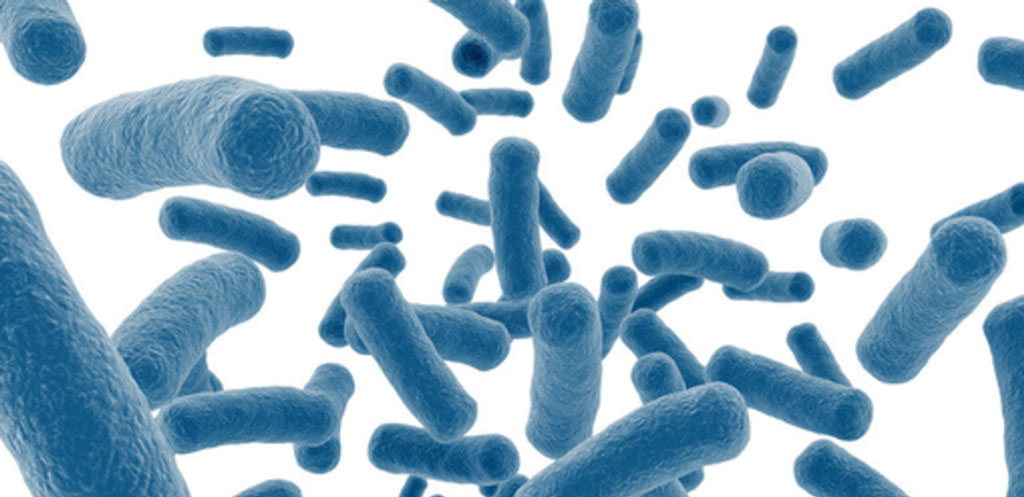
What are the gut microbiota and gut microbiome?
The human gastrointestinal tract (gut) is populated by an enormously heterogeneous and different group of microorganisms (up of trillions of cells and over 1000 species) including bacteria, viruses, protozoans, and fungi. Therefore, the human gut is home to a complex network of living microorganisms collectively referred to as the gut microbiota, also known as gut flora or gastrointestinal microbiota.
On the other hand, the gut microbiome is the collective name used to define all genes your microbiota contains. In other words, it represents the entire collection of genetic material (around 3.3 million genes) inside these microbes living in our gut.
Why is the gut microbiota essential?
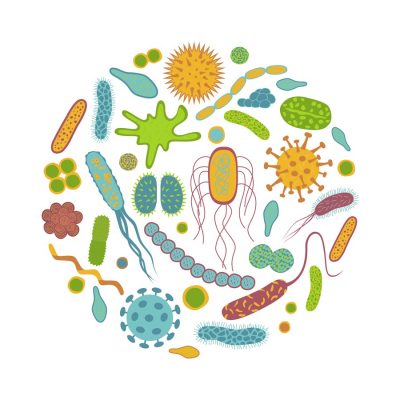
Many of these organisms provide some benefits to the human host including the fermentation of carbohydrates, synthesis of specific vitamins (vitamin production), breakdown of certain compounds that cannot be assimilated by our body such as drugs and chemicals as well as the education of the mucosal immune system (immune defense). Therefore, the role of gut microbiota is to support the digestion and absorption of several nutrients, promote gut immunity and inhibit significant colonization of pathogens (biological agents that can produce disease in its host). Importantly, it has been shown that the composition of the gut microbiota can be influenced by several factors, including diet, age, and genetics. However, it is well established that environmental factors such as diet, antibiotics, oral contraceptive pills, and lifestyle can influence our gut microbiome more than our genes.
The gut microbiota has a crucial role in nearly every aspect of our lives, including synthesis of many of our vitamins, hormones and essential amino acids. In addition, the gut microbiota protects us from a range of toxins and diseases.
What your gut microbiome can tell you about your health?

Recently, it has been demonstrated that the changes in the gut microbiome composition can increase the susceptibility to several diseases such as obesity diabetes, Alzheimer and Parkinson diseases as well as to multiple sclerosis, inflammatory bowel disease, colon cancer.
In addition, some studies have shown that the composition of gut flora can also change during the pathogenesis of cardiovascular diseases and that the modification of the gut microbiota plays a crucial role in the pathogenesis of atherosclerosis. For example, it has been observed that patients having atherosclerosis possess a high abundance of two bacteria called Streptococcus and Veillonella both in atherosclerotic plaques and oral cavity.
Importantly, the diet influences the composition of gut microbiota. Food operates as a substrate that is utilized by the gut microbiota for the production of several molecules that, after the metabolism through the liver have an essential effect on host physiology.
What exactly is the gut microbiome?
The term gut microbiome refers to the full collection of all the genes contained by the microorganisms in the human gut. The human genome (the whole set of DNA in the human body) consists of about 23.000 genes whereas the gut microbiome encodes over three million genes. These genes can produce thousands of metabolites, which replace many of the functions of the host, consequently influencing the host’s health.
Genetic testing for gut microbiome
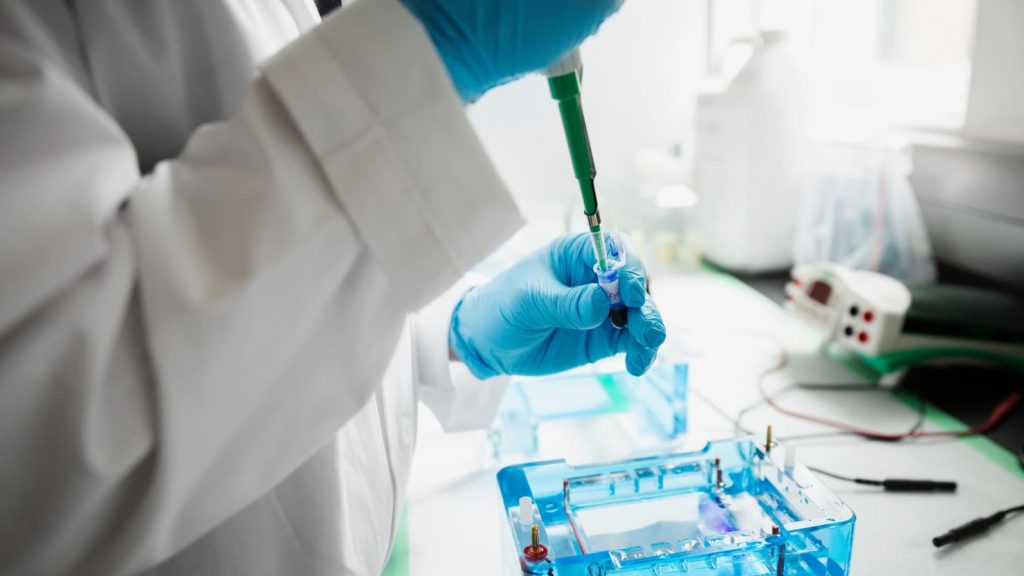
With recent advances in DNA technology, it is now possible to tell you what bacterial species are present in your gut microbiome. The genetic analysis of the microbial populations of the human gut can be used for new diagnosis and treatment.
Thanks to technological advances in DNA sequencing (a technique used to determine the nucleotide sequence of your DNA), such as Next Generation Sequencing (NGS), it is now possible to quickly characterize all of the bacteria that reside in your gut.
DNA microbiome testing can detect even the smallest level of bacteria in a stool sample, which can offer valuable information about how the gut is working and what effect it is having on your health and disease. When you send in your stool sample for a microbiome test, biologists will isolate the RNA in your poop sample and will look only at the part that comes from bacteria. This method allows determining the species of bacteria that are present in your microbiome.
Take home messages
Many persons still regard microbes just as disease-causing microorganisms. However, it becomes increasingly clear that the healthy human body is abounding with microorganisms and that the human gut microbiota is the most important microsystem living in symbiosis with our body. Many of these microorganisms have a crucial role in our metabolism and immune response. For example, the gut microbiota helps us to digest food, regulate the immune system and control infections by pathogens. Therefore, we are a complex organism made up of human cells and microbial cells.
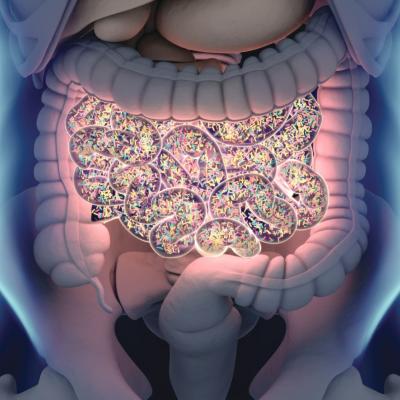
It is essential to underline that your intestine harbors more microbes than any other part of your body (around 3.3 million human gut microbe genes). Importantly, the gut microbiota is unique for each person, and therefore it should be considered as a partial fingerprint of your stomach, identifying how you digest food, produce vitamins and also your risk for several diseases including metabolic disorder (diabetes and obesity), cardiovascular disease as well as atherosclerosis and kidney disease. Importantly, it has also been observed that several health conditions such as neurologic, chronic inflammatory psychiatric disorders as well as autoimmune disorders are associated with alterations in the gut microbiome.
The current genetic tests can identify microorganisms in your gut that might be affecting your health. For example, these tests detect beneficial and pathogenic microorganisms associated with gut conditions such as ulcerative colitis and Crohn’s Disease. All these microorganisms including bacteria, viruses, fungi, yeast, and parasites can be detected by sequencing the genetic material starting from a tiny sample of stool (poop) because every microorganism has their DNA.
Identifying the microorganisms in your gut could be important for you because these living elements play an essential role in health and disease.
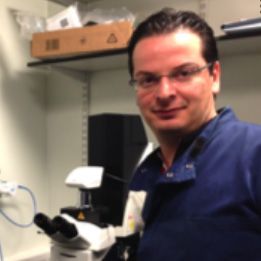
Current position: PostDOC at Technologica Research Institute, Crotone, Italy and Student at School of Specialization in Medical Genetics, University “Magna Graecia” of Catanzaro, Campus “S. Venuta”, Catanzaro, Italy.
Education: University of Calabria, Italy, Degree in Biological Sciences, 2003; University of Milano-Bicocca, Italy, Master in Bioinformatic, 2006; University “Magna Graecia” of Catanzaro, Campus “S. Venuta”, Catanzaro, Italy, PhD in Molecular Oncology, Experimental Immunology and Development of Innovative Therapies, 2012.
Nonscientific interests: Computers and technology, fanta-scientific movies, reading, sports.
Scientific interests focus on medical genetics, molecular and cellular oncology and stem cell biology. I’m a coauthor of 35 published papers, 1 patent and 3 book chapters.
